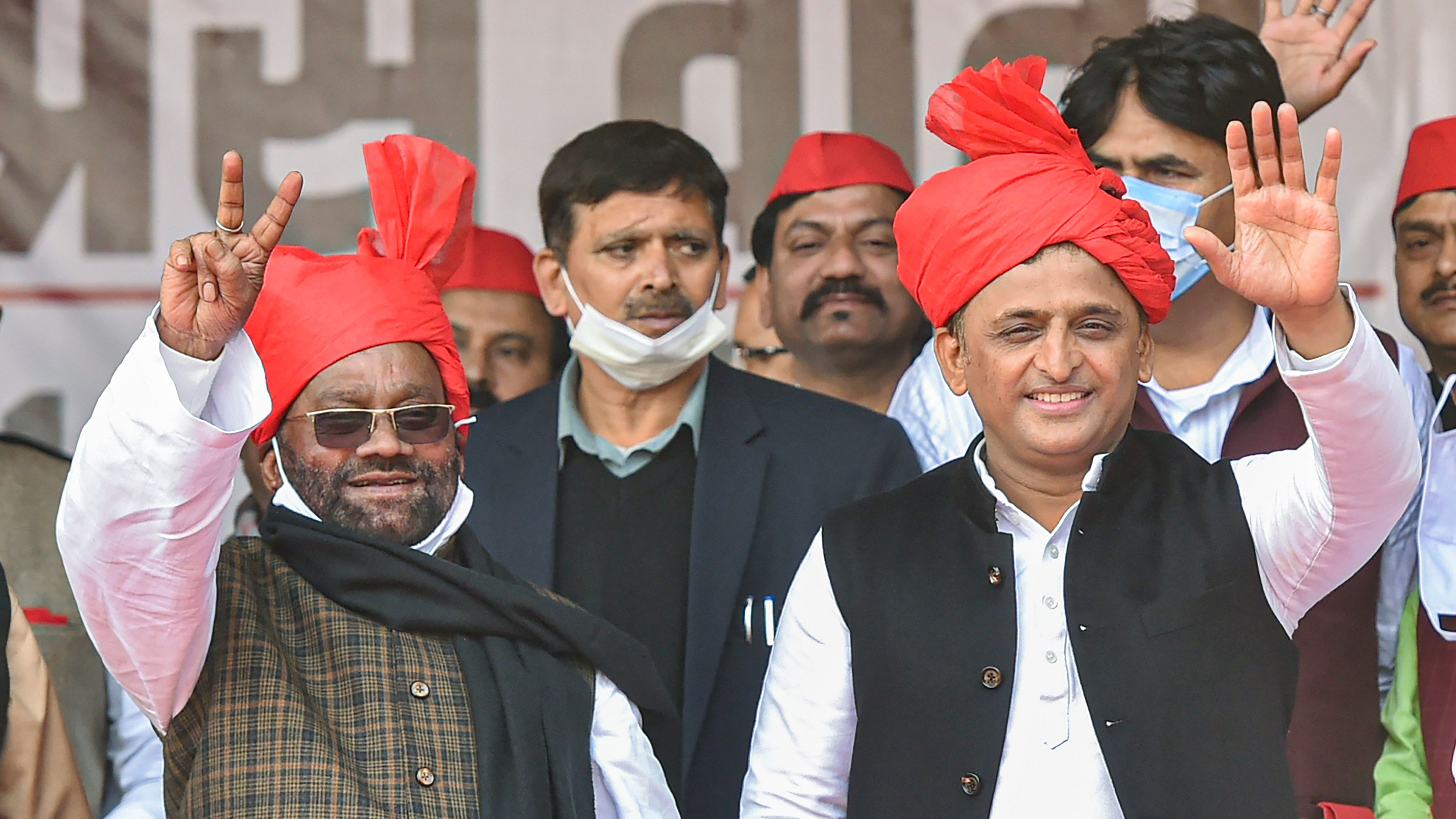
With a well-calculated strategy, the Samajwadi Party (SP) sparks a debate on social justice in Uttar Pradesh. The politics of social justice might upset the apple cart of the Bharatiya Janata Party (BJP) in the 2024 general elections.
In January, SP leader Swami Prasad Maurya said that some verses in the ‘Ramcharitmanas’ were an "insult to tribals, Dalits, and backward castes". This triggered strong reactions from various groups in the politically significant state of Uttar Pradesh.
Sections within the Right-wing ecosystem have been putting pressure on SP President Akhilesh Yadav to sack Maurya from the party. Yadav, instead, asked the OBC leader to formulate a plan for a movement demanding a ‘caste census’. Beside this, Yadav also elevated Maurya as the SP’s national general secretary.
Through this, Yadav has sent a strong message that he intends to bring the issue of social justice to the centre of national politics. As the BJP is wary of losing its core upper-class support base, it tends to avoid social justice politics.
Seemingly perturbed by the developments since then, the Rashtriya Swayamsevak (RSS) has also lent its opinion on the issue. On February 5, RSS chief Mohan Bhagwat said that “…What some pandits say based on shastras is a lie. We are misled by caste superiority, and this illusion has to be set aside”.
Bhagwat's statement comes at a time when the SP is preparing the ground for challenging the BJP on caste politics.
Political Social Justice
Electorally, both the SP and the BJP need the support of the OBCs in Uttar Pradesh.
A focus on social justice has rewarded the SP at the hustings in the past. In 1993, amid a communally-charged atmosphere following the demolition of the Babri masjid in 1992, SP founder Mulayam Singh Yadav joined hands with the Bahujan Samaj Party. Though the Bharaitya Janata Party (BJP) was the single-largest party in the assembly, it was the SP-BSP combine which formed the government. The coalition was able to put up a good show because the Muslims, the OBCs, and the Dalits came together.
In 2012, the OBCs and the Muslims backed the SP, which formed the government, this time on its own.
However, Narendra Modi’s segue into national politics saw the non-Yadav votes shifting to the BJP. In the 2014 general elections, the BJP won 71 of the 80 seats from Uttar Pradesh, and in the 2017 assembly polls it came to power removing the SP government. Of the 403 assembly seats, the BJP won 312, while the SP managed just 47. In 2022, the SP under Akhilesh Yadav joined hands with small caste-based parties and was able to wean away the marginalised classes from the BJP’s fold. The BJP tally went down to 255 seats, while the SP’s rose to 111.
BJP On Backfoot
Of late, it seems that the BJP is losing its grip on the OBC votes. The BJP's OBC face and Deputy Chief Minister Keshav Prasad Maurya lost the polls in 2022. Despite appointing Jat leader Bhupendra Chaudhary as its UP unit head, the BJP lost by-election to the Khatauli seat in December. The OBCs have also frowned upon the BJP for not conducting the Supreme Court-stipulated triple test for reservation in civic polls. That the Chief Minister’s post was given twice to an upper-caste leader despite the OBCs rallying behind the BJP has not gone down well with many in the community.
The SP aims to highlight these issues, and put pressure on the BJP over issues such as reservation and caste census, and simultaneously spread it outreach among non-Yadav OBCs.
Political Narrative
The creation of an impression that the BJP takes the support of the OBCs only for winning elections but works against their reservation and does not include them in meaningful representation by sharing power will be to the SP’s advantage. Meanwhile, the BJP it seems is trying to project Akhilesh Yadav as anti-Hindu, but the SP leader is unfazed — this might be because it is expected that the upper-caste Hindus will rally behind the BJP once the Ram temple in Ayodhya is inaugurated in 2024.
The upcoming elections is very crucial for the SP, and for Akhilesh Yadav, and to stay relevant it is necessary that the party works on issues such as social justice, caste census, reservation, and intensify the Mandal politics to counter Kamandal.
(Asad Rizvi is a Lucknow-based journalist.)
Disclaimer: The views expressed are the author's own. They do not necessarily reflect the views of DH.